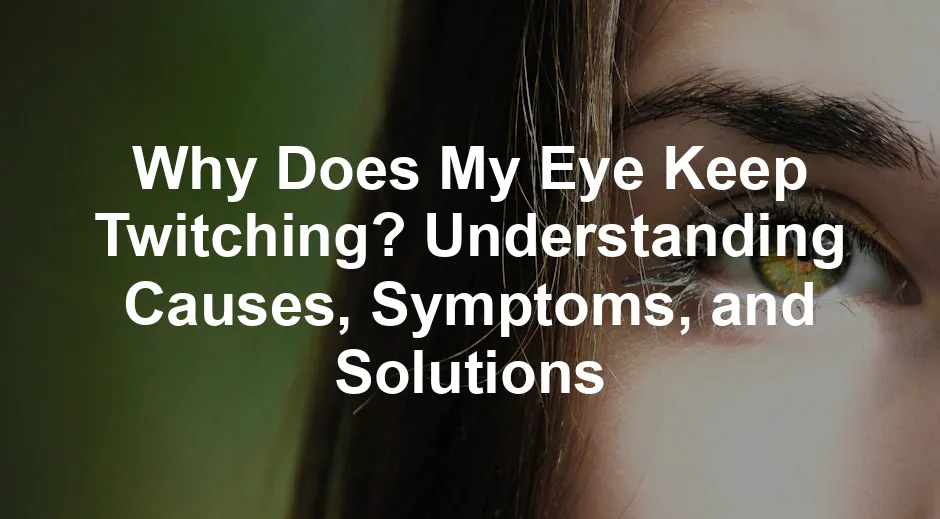
Why Does My Eye Keep Twitching? Understanding Causes, Symptoms, and Solutions
Introduction
Picture this: you’re sitting in a quiet café, sipping your favorite drink, completely relaxed. Suddenly, your eye twitches like it’s trying to send a secret Morse code message. It’s as annoying as a mosquito buzzing in your ear at midnight, isn’t it? Eye twitching, or eyelid spasms, is a common annoyance that strikes unexpectedly. It might feel like a mini dance party for your eyelids, and while it’s often harmless, it can drive anyone a bit bonkers.
So what exactly is eye twitching? It’s an involuntary spasm of the eyelid muscles, which can occur in both the upper and lower eyelids. Surprisingly, this quirky phenomenon affects many people at some point in their lives. While most cases are fleeting and benign, the twitching can become bothersome, particularly if it goes on for days.
Understanding why your eye is doing the cha-cha can help ease your worries. Knowing the causes may not only stop the twitch but also provide some peace of mind. In this article, we’ll dive into the various reasons behind eye twitching, its symptoms, treatments, and when it’s time to seek professional help. So, let’s get ready to untangle the mystery of that pesky eye twitch!

Summary
Eye twitching is a common and usually harmless condition that many people experience. It involves involuntary spasms of the eyelid muscles and can manifest in various forms. There are different types of eye twitches, including eyelid myokymia, which is mild and sporadic, and blepharospasm, characterized by more severe and sustained spasms.
The most common culprits behind eye twitching include stress, fatigue, excessive caffeine consumption, eye strain, and dehydration. Thankfully, there are numerous treatment options available, ranging from simple home remedies to more involved medical interventions.
If your eye twitch persists for more than a couple of weeks or starts to interfere with your daily life, consulting a healthcare professional is essential. They can help identify any underlying issues and recommend the best course of action.
Curiously, there are also lesser-known causes and remedies lurking in the shadows, which we’ll uncover later on. So, stay tuned as we continue to unravel the enigma of eye twitching!
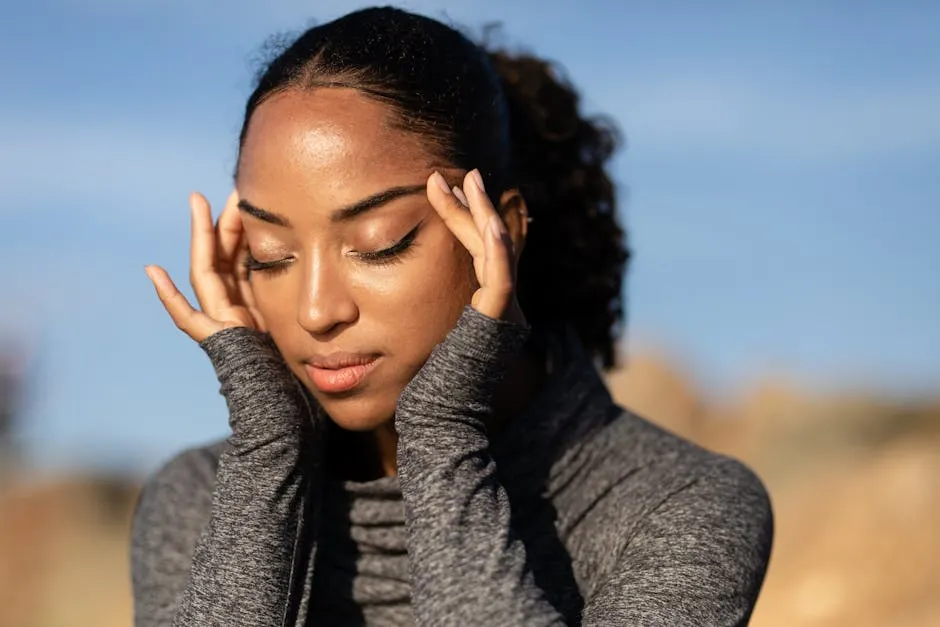
What is Eye Twitching?
Eye twitching refers to involuntary spasms of the eyelid muscles. You might feel a tiny flutter, or in some cases, a more pronounced jerk. It can happen to anyone and often occurs without warning. The twitching can last for a few seconds or even extend over days.
Eye twitching can be broadly categorized into three main types:
- Eyelid Myokymia: This is the most common form. It usually involves mild, sporadic twitches that can occur in the upper or lower eyelid. These twitches are typically harmless and may stop after adequate rest or reduced caffeine intake.
- Blepharospasm: This is a more severe condition where the eyelid muscles spasm uncontrollably, causing the eyelids to close. While it may start with mild twitching, it can escalate over time and might require medical intervention.
- Hemifacial Spasm: This condition affects one side of the face, causing involuntary contractions that may involve the eyelid. It’s often linked to nerve irritation or pressure and can be more complex to diagnose and treat.
Each type of eye twitch varies in severity and underlying causes, but most are temporary and resolve on their own. Understanding these distinctions can help individuals identify the nature of their symptoms and seek appropriate solutions.
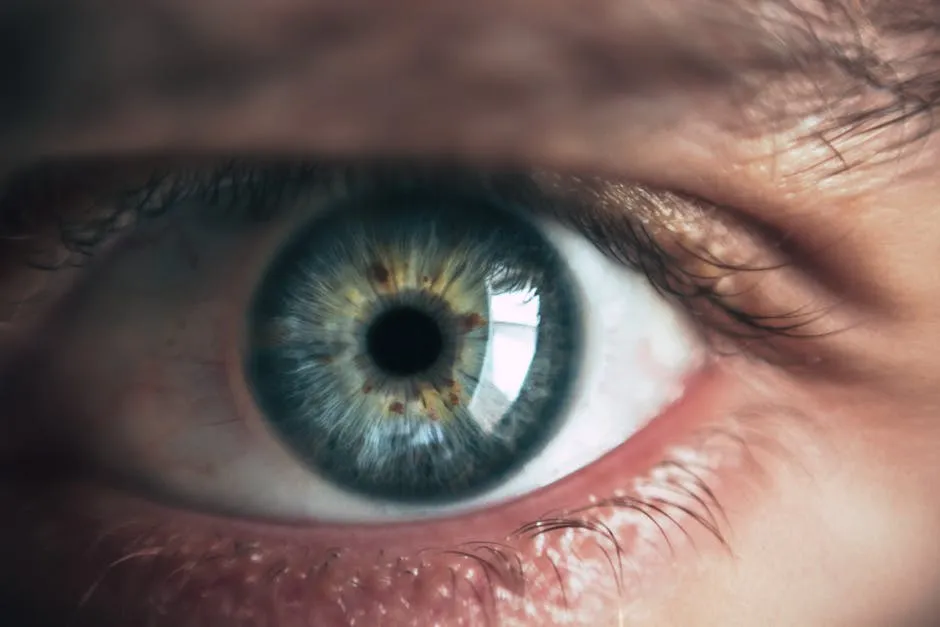
Common Causes of Eye Twitching
Stress and Anxiety
Ah, stress—the uninvited guest that overstays its welcome! When life throws curveballs, our bodies react. Stress can lead to muscle spasms, including that pesky eye twitch. Think of it as your body’s way of saying, “Hey, slow down!” The muscles around your eyes tighten up, causing those annoying little twitches.
So, what can you do to keep stress at bay? Meditation is a fantastic method to calm your mind. Picture this: you’re sitting cross-legged, sipping herbal tea, and channeling your inner Zen. Yoga is another great option—who knew downward dog could help your eye twitch? Deep breathing exercises and regular physical activity can also work wonders. Remember, a relaxed mind translates to relaxed muscles!
Consider adding a Herbal Tea Variety Pack to your relaxation routine. A warm cup of herbal tea can soothe your nerves and provide a comforting ritual to help you unwind after a long day.
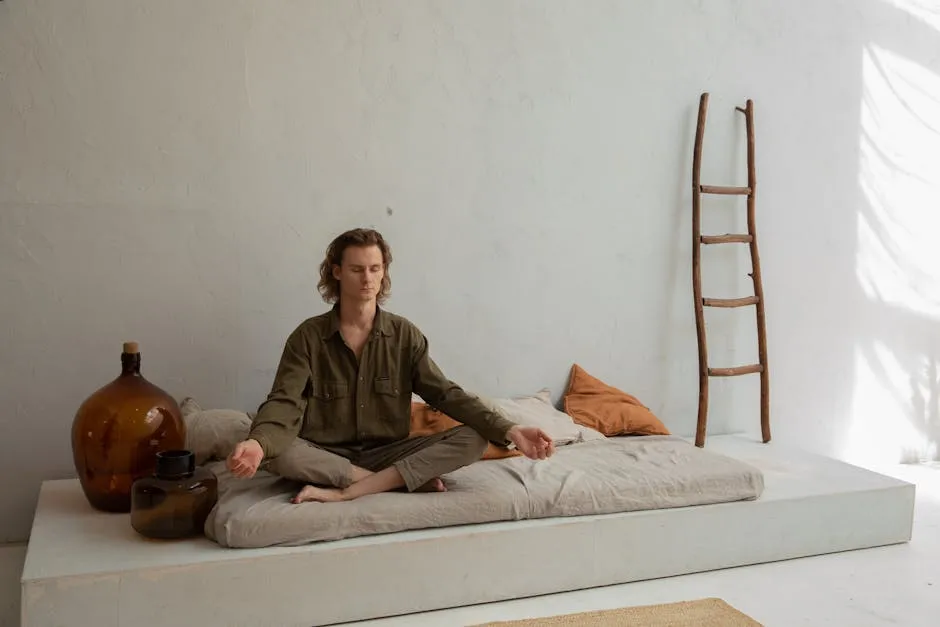
Fatigue and Sleep Deprivation
Lack of sleep is like that friend who shows up uninvited and messes everything up. Feeling tired? Your body might retaliate with twitches. Sleep deprivation disrupts your nervous system, making eye twitching more likely. It’s like your eyelids are crying for help!
To improve your sleep hygiene, establish a consistent sleep schedule. Aim for 7-9 hours of quality sleep each night. Create a relaxing bedtime routine—think warm baths or reading a good book (not on your phone!). Avoid screens at least an hour before bed; those blue lights are notorious for keeping you awake. A dark, cool room can also help you drift off. Sweet dreams lead to happy eyes!
Enhance your sleep experience with a Sleep Mask for Better Rest. This can block out unwanted light, helping you achieve a deeper, more restful sleep.

Caffeine and Stimulants
If you’re a caffeine addict, your eye might just be protesting! Overindulging in coffee, tea, or energy drinks can trigger eye twitching. Caffeine is a stimulant, and too much of it can lead to muscle spasms. Your eyelids are simply waving the white flag, asking for mercy.
To reduce caffeine consumption, consider swapping that third cup of coffee for herbal tea. You might find it refreshing! Gradually cut back on caffeine rather than going cold turkey, as this can lead to withdrawal headaches. Remember, moderation is key. Your eyes will thank you!

Eye Strain
In today’s digital age, screen time is at an all-time high. Prolonged use of computers, tablets, and smartphones can lead to eye strain, which can trigger twitching. Not to mention, poor lighting can be a culprit too. Your eyes are like delicate flowers, and they need proper care!
To reduce eye strain, follow the 20-20-20 rule. Every 20 minutes, take a 20-second break to look at something 20 feet away. Adjust your screen brightness and ensure proper lighting while working. Blink frequently to keep your eyes moist. Your eyes deserve a break, so give them the TLC they need!
Consider using Blue Light Blocking Glasses to protect your eyes from the harmful effects of screen time. These glasses can help reduce eye strain and improve your comfort while using digital devices.
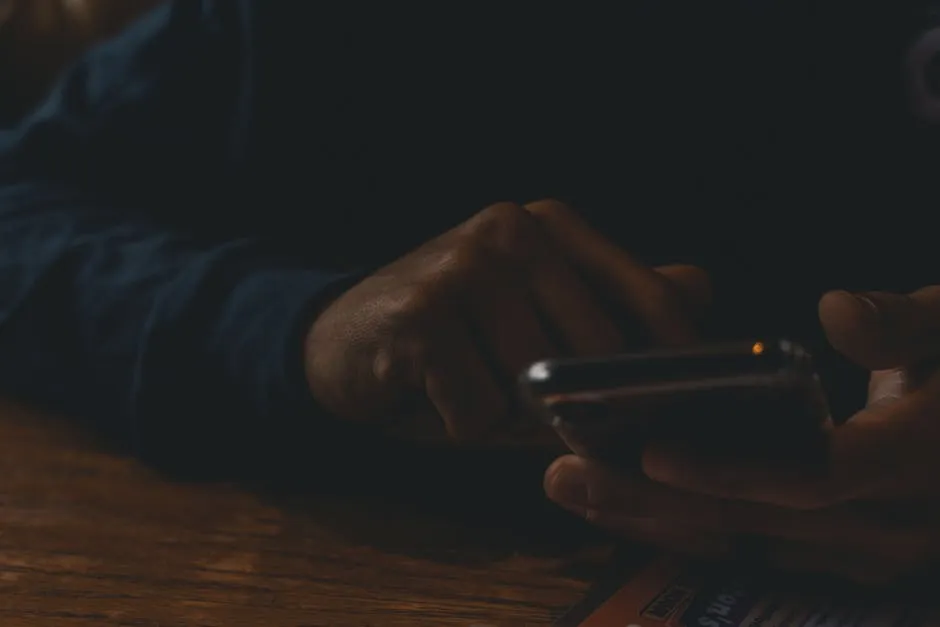
Dehydration and Nutritional Deficiencies
Dehydration can make your muscles twitchy, including those around your eyes. Not drinking enough water? Your body might be sending out SOS signals. Additionally, deficiencies in essential nutrients, particularly magnesium, can contribute to muscle spasms.
To stay hydrated, aim for at least 64 ounces of water daily. Keep a fun Water Bottle with Time Marker handy to remind you! For nutritional balance, include magnesium-rich foods in your diet—think leafy greens, nuts, seeds, and whole grains. A well-fed body is a happy one, and your eyes will be grateful!

Other Potential Causes
While the above causes are common, let’s not forget the less frequent culprits. Neurological disorders can lead to eye twitching, though these are much rarer. Certain medications may also have side effects that contribute to muscle spasms. If your twitching persists or worsens, don’t hesitate to consult a healthcare professional. Understanding the root cause is essential for effective treatment.
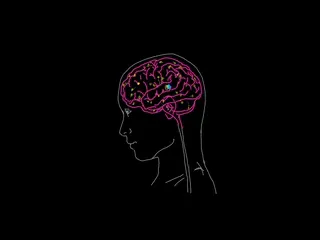
Symptoms of Eye Twitching
Eye twitching can be an annoying little prank your eyelids play. Typical symptoms include involuntary spasms of the eyelid, which may feel like a gentle flutter or a more pronounced jerk. Sometimes, the twitching can be so persistent that it feels as if your eyelid is trying to communicate with the outside world. These spasms can last from a few seconds to several days, and they often occur without warning.
But not all twitches are created equal. If the twitching is accompanied by drooping eyelids, other facial spasms, or persistent blinking, it could be a sign of something more serious. For instance, blepharospasm is a condition that leads to uncontrollable blinking and may require medical attention. It’s essential to take note of any accompanying symptoms, as they can help pinpoint the underlying cause.
Tracking your symptoms can also be beneficial. Keeping a diary of when the twitching occurs, along with any potential triggers such as stress, fatigue, or caffeine intake, can help you identify patterns. This information can be invaluable when discussing your symptoms with a healthcare professional. If you notice that your eye twitching coincides with particular activities or lifestyle choices, you may be able to make adjustments to prevent further twitching episodes.
In summary, while most eye twitches are harmless, monitoring your symptoms is crucial. If you experience additional symptoms like drooping eyelids or other facial spasms, don’t hesitate to consult a doctor. Being proactive about your health is the best way to tackle those pesky eyelid dances!

Treatment and Management Options
Home Remedies
When it comes to eye twitching, sometimes simple home remedies can work wonders. One of the most effective ways to combat those pesky spasms is to ensure you’re getting adequate rest. A good night’s sleep can do wonders for your overall well-being and keep those eyelid dances at bay.
Another tip? Reduce your caffeine and alcohol intake. Both can act as stimulants, triggering those unwanted twitches. Consider swapping that third coffee for a soothing Relaxing Tea Set. Your eyelids will thank you!
Using warm compresses on your eyes can also provide relief. Just grab a clean cloth, soak it in warm water, and place it over your closed eyelids for a few minutes. The warmth can help relax the muscles and ease any tension.
Staying hydrated is another key factor. Dehydration can lead to muscle spasms, including those pesky twitches. Aim for at least eight glasses of water a day. Keep a fun water bottle handy to remind yourself to sip throughout the day!

Medical Treatments
While most eye twitches are harmless and resolve on their own, there are times when you may need to consider medical treatments. If your twitching persists for more than a couple of weeks or starts affecting your daily activities, it may be time to consult a healthcare professional.
In some cases, botulinum toxin injections may be recommended for severe twitching. These injections help relax the muscles around the eyes, reducing spasms for several months. It’s a popular option for those struggling with conditions like blepharospasm.
Additionally, medications can alleviate symptoms. Your doctor might prescribe oral medications to help manage the twitching. It’s essential to discuss any potential side effects with your healthcare provider.
Surgery is usually a last resort for persistent conditions, especially if other treatments have failed. Procedures like myectomy can help by removing some eyelid muscles or nerves to reduce twitching. However, surgery is rare and typically reserved for severe cases.
In summary, while home remedies can be effective for mild cases of eye twitching, don’t hesitate to seek medical help if symptoms persist or worsen. Your healthcare provider can guide you through the best options tailored to your specific needs. Remember, your eyes deserve the best care!

When to See a Doctor
Eye twitching is usually a benign annoyance, but there are times when it’s essential to seek medical advice. If your eyelid spasms for more than two weeks, it’s time to consult a healthcare provider. Prolonged twitching can be a red flag, indicating that something more serious might be at play.
Another scenario to consider is when the twitching significantly impacts your vision or daily activities. If you find yourself unable to focus on tasks or if your eye keeps closing due to the spasms, don’t ignore it. Your quality of life deserves better than a persistent eye dance!
Accompanying symptoms can also signal a need for medical attention. If you notice drooping eyelids, facial spasms, or twitching in other areas, it’s crucial to get evaluated. These symptoms could indicate underlying neurological conditions that require professional assessment.
During your visit, a healthcare provider will typically start with a comprehensive evaluation. Expect them to ask about your symptoms, medical history, and any medications you might be taking. They may perform a physical examination of your eyes and facial muscles, looking for any visible issues.
If necessary, they might refer you to a specialist, such as a neurologist or ophthalmologist, for further testing. This could include imaging tests like an MRI to rule out any serious concerns. The goal is to ensure that your eye twitching is just that—a harmless quirk, not a symptom of a more significant problem.
In summary, while most eye twitches are harmless, trust your instincts. If something feels off, don’t hesitate to reach out to a healthcare professional. Better safe than twitchy!
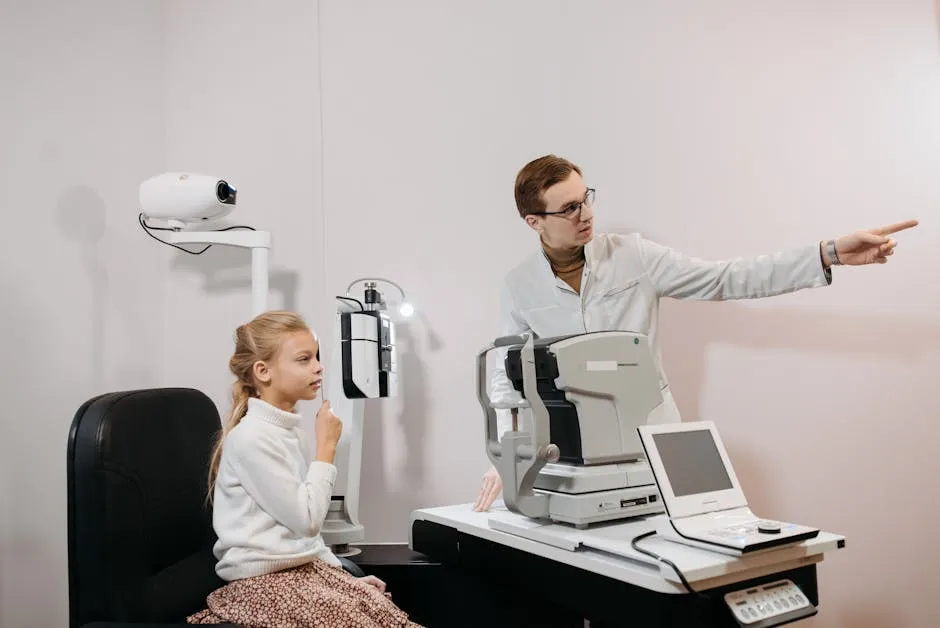
Conclusion
Eye twitching can feel like a personal vendetta from your eyelids, but most of the time, it’s harmless. We’ve explored common causes, including stress, fatigue, caffeine, and eye strain. Understanding these triggers can help you manage and alleviate the annoyance of eye twitching.
Remember, if your twitching lasts longer than a couple of weeks, impacts your daily activities, or is accompanied by concerning symptoms, it’s wise to consult a healthcare provider. They can help identify any underlying issues and suggest appropriate treatments.
As you pay attention to your body and its signals, you’ll gain a sense of control over those pesky eyelid dances. So, the next time your eye decides to throw a mini rave, you can remind yourself that knowledge is power—kind of like having the upper hand against that pesky mosquito! Stay informed, stay healthy, and keep those eyelids in check!
If you’re curious about the reasons behind your eye twitching, check out this article on why is my eye twitching.
FAQs
What are the different types of eye twitching?
Eye twitching comes in a few flavors, like a quirky ice cream shop. The most common type is eyelid myokymia, which involves mild, sporadic twitches. These little nuisances usually affect the lower eyelid. Then, we have blepharospasm, where the eyelids spasm uncontrollably, leading to potential eye closure. Finally, there’s hemifacial spasm, which impacts one side of the face and can involve both the eyelid and other facial muscles. Each type has its own quirks, but most are temporary and manageable.
Can eye twitching be a sign of something serious?
Most of the time, eye twitching is harmless, akin to a brief annoyance. However, persistent twitching could point to underlying issues. If your eyelids start doing the cha-cha for weeks or are accompanied by drooping or other facial spasms, it’s wise to consult a healthcare professional. They can help ensure there’s nothing more serious lurking beneath the surface.
How long should I wait before seeking medical help for eye twitching?
If your eye twitch is sticking around like that friend who overstays their welcome, consider seeking medical help after two weeks. If the twitching affects your vision or daily life, don’t hesitate to reach out sooner. It’s always better to be safe than sorry!
What lifestyle changes can I make to prevent eye twitching?
Prevention is often easier than cure! First, prioritize sleep—aim for 7-9 hours each night. Next, cut back on caffeine and alcohol; those little stimulants can trigger eye spasms. Incorporating stress-reducing activities like yoga or meditation can also help keep those eyelids calm. Finally, remember to take breaks from screens and stay hydrated. Your eyes will appreciate the love!
Is there a specific diet that can help reduce eye twitching?
While there’s no magic diet to eliminate eye twitching, keeping your body nourished can help. Focus on a balanced diet rich in magnesium, which is vital for muscle function. Leafy greens, nuts, seeds, and whole grains are excellent choices. Staying hydrated is equally important—so drink up! A well-fed and hydrated body is less likely to throw a twitching tantrum.
Consider also treating yourself with a Home Spa Kit to create a relaxing environment at home. After all, relaxation is key to managing stress and keeping those eyelids calm!
Please let us know what you think about our content by leaving a comment down below!
Thank you for reading till here 🙂
All images from Pexels




